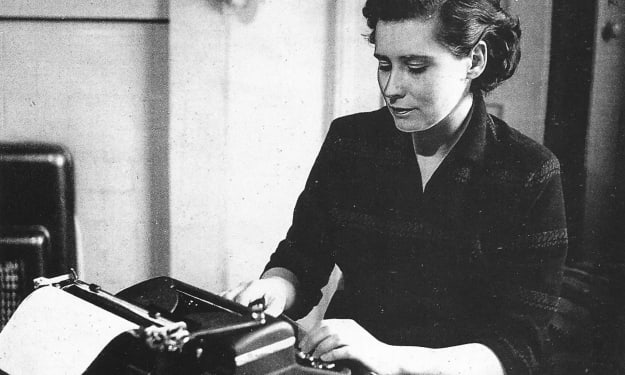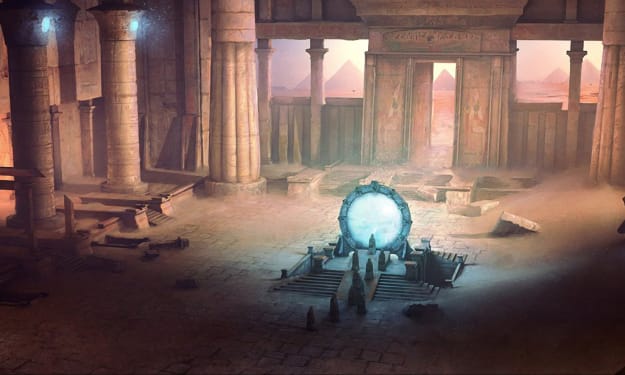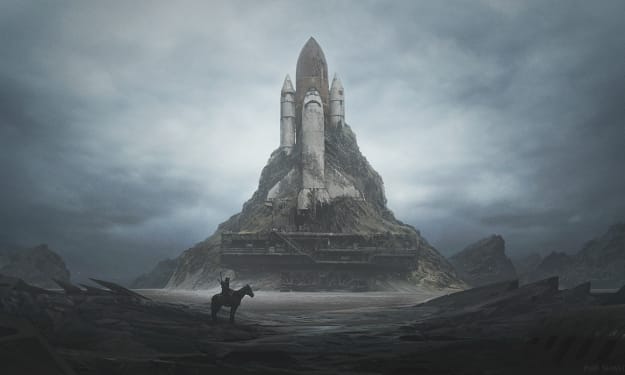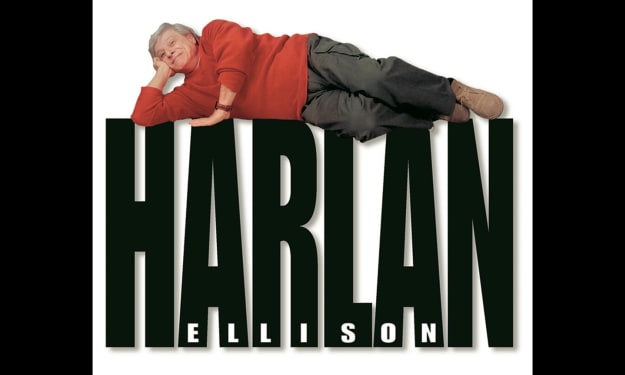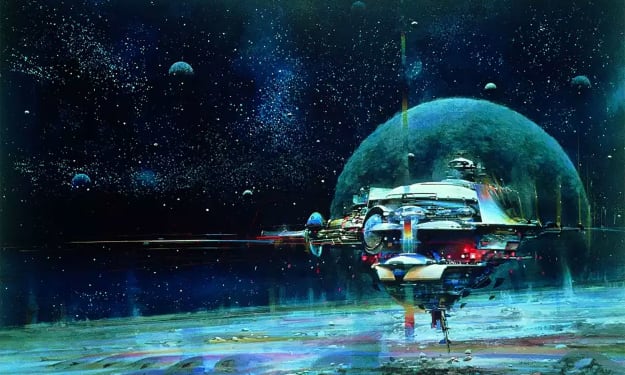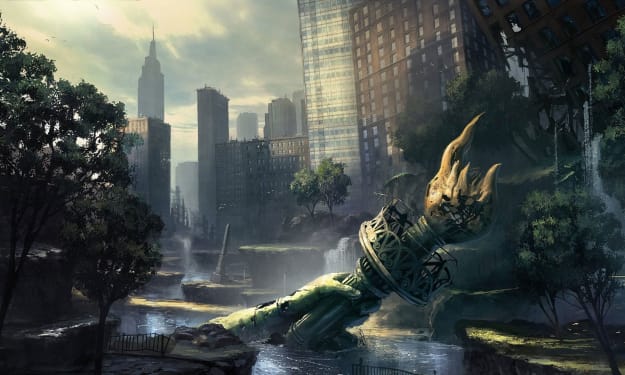literature
Science fiction's most popular literary writers from Isaac Asimov to Stephen King and Frank Herbert, and the rising stars of today.


Science Fiction Feminist Dorris Lessing
Doris Lessing, made famous by her epic novel of the female experience, The Golden Notebook, was also a prolific writer of science fiction. She was not a fan of genre distinctions. She called science fiction "some of the best social fiction of our time," writing woozy, difficult books about psychic women and fallen paradises.
Stephanie GladwellPublished 7 years ago in Futurism

Surprising Science Fiction Stories from the Ancient World
Some think of Mary Shelley’s Frankenstein as the beginning of science fiction. Others would say that it didn’t really begin until H.G. Wells began writing down his marvelous, speculative stories in which he imagined terrible - and wonderful - possibilities for the futures. While these might be the beginnings of science fiction or speculative fiction as we define it today, there are many stories from the ancient world and early cultures all over the planet that contained elements of science and speculation similar to the ones we love today.Whether they’re early tales from Japan or surprising elements of the Bible, these stories will inspire you to take a closer look at what you consider the origins of your favorite genre.
Sarah QuinnPublished 7 years ago in Futurism

Best Sci-Fi Graphic Novels for Kids
It can be challenging to find science fiction graphic novels for children that aren’t too scary or violent, but also don’t demean kids or gloss over their interests. While you have to make the call for your own kids, here are six great choices for all the youngsters on your Christmas list. Whether they’re preschoolers who can’t yet read or high school students who’ve been adoring fans of the genre for years, you’re sure to find something that’s just right. (And yes, it’s totally ok to devour it from front to back before you wrap it and pass it on to them. I won’t tell.)
Sarah QuinnPublished 7 years ago in Futurism

How to Write a Dystopian Fiction
Dystopian fiction is a simply beautiful genre, captivating the core inner child within us all, fascinating us with the believably far-fetched and apocalyptic descriptives, and satisfying our deeply morbid desire for destruction. It touches a nerve that no other fiction reaches; unlike magic, it's believable. Unlike non-fiction, it allows for complete creativity. Unlike horror, it isn't routed in simply scaring us.
Benjamin WareingPublished 7 years ago in Futurism

The Most Amazing Quotes About Science Fiction
Science fiction is a world worked in and lived in by necessity, not by choice. If we as readers are seeking a world so dark and revealing when we could be visiting Rivendell instead, we’re seeking it because we need it. Why? The answer depends on the person. Some of us are in a perpetual state of near-frantic scientific curiosity that demands more satisfaction than our own research can give us. Some of us are struggling with mental illness, and the world of science fiction is a reassuring reminder that every world has its horrors. Some of us need to hear that we are not the only ones who would turn tail and run in the face of almost-certain death and unimaginable horrors. No matter why we seek it, there are always certain passages that speak the thoughts we can’t put into words, and in so doing give us a peace we can hardly explain. Here are a few; they’re just a sample of the many inspiring words from speculative authors, scientists, and visionaries.
Sarah QuinnPublished 7 years ago in Futurism

To Preserve a Demon
Writer/editor Jason Davis has a special ambition -- to catalog, digitize, edit, correct, annotate and re-publish (or publish for the first time, in some cases) all of Harlan Ellison's writings. Twenty-six four-foot-wide drawers of typescripts, over 100 feet of paper if stacked, the lifework of a man who is easily one of the most influential and cantankerous authors of the 20th century. Jason is spearheading the Harlan Ellison Books Preservation Project, a grand undertaking "To create definitive versions of all Harlan Ellison's writings, fiction and non-fiction, to preserve in print for posterity."
Joshua SkyPublished 7 years ago in Futurism

Best Ben Bova Books
“I suggest in the beginning of 'The Story of Light' that you walk into a party blindfolded,” bantered Dr. Ben Bova to radio host Ben Hodel on his KPFK program Hour 25, “see where that gets you.”
Futurism StaffPublished 7 years ago in Futurism

Pain & Paranoia
The itching in his leg consumed Jason’s attention as he sat in his bland, beige cubicle. He scratched at his shin with the heel of his shoe, while trying to keep a smooth rhythm of clacking on his keyboard. He answered his phone without stopping the rubbing at the front of his shin, just above his ankle. The digging of his shoe heel caused an aching and a bruise throughout his shin, but only stopped the itching momentarily.
Jeff SherwoodPublished 7 years ago in Futurism

Thought Provoking Political Dystopian Books
If 2016 can teach us anything, it is that fiction can become reality. As a common rule, humanity strives for constant progress; movement towards a superior standard of living. But what happens when everything goes wrong instead? As humans we constantly question the 'what if' scenario. The dystopia genre is the anthesis of utopia and is a mainstay of science fiction writing over the years. The genre has taken the 'what if' to speculate about a future where every aspect of life has taken a distinct and frightening turn for the worse. Within the classic dystopian genre there lies the more thought provoking political dystopian theme. A typical tale involves a future society with an oppressive government that demands conformity. Sometimes this is in the wake of a disaster that has befallen humanity or society as a whole has taken a dark and oppressive turn for the worse. Often times there are no beautiful endings in these political dystopian books, only a joyless and dysfunctional future with glimpses into the light.
George GottPublished 7 years ago in Futurism

The Science Fiction of Music
My first novel, Big in Japan, is about a neurotic American prog-rocker coming of age in Japan. My second, Jellyfish Dreams, is about a biologist’s quest to reanimate his dead fiancée at the instigation of a black hole beneath his sofa. Readers who’ve read both books usually remark on how different they are, but I don’t see it that way. For one thing: crazy artist, mad scientist—same difference. For another, even if you agree with (a quote I’ve seen attributed to) sf comics genius Warren Ellis that “Prog rock was sick and wrong then and it is sick and wrong now,” one can’t deny that prog drinks as liberally from the sf well as it does from the epic and fantasy ones. And so, a primer on some of history’s more salient prog-sf conjunctions:
M. Thomas GammarinoPublished 7 years ago in Futurism

Sci-Fi's Obsession with the American West
I was once in Big Bend National Park and thought I’d stepped onto another planet. If you’ve had the misfortune never to have visited, it’s a mostly parched desert wonderland with the strangest flowers, succulents, and eerie hills that you can imagine. Toss in the sexy wild lawlessness of the historical American West and you can see why science fiction would create some of its most memorable works against such an awe-inspiring backdrop. From cartoons like Cowboy Bebop and Trigun to animated shows like Galaxy Rangers and Bravestarr, science fiction clearly has a great big ol’ crush on the American West. There’s DC Comics’ Jonah Hex, a whole slew of terrible B-movies, and then there are the great ones: films like Westworld and Back to the Future Part III, books like The Gunslinger, and shows like Firefly (*sniff*). If you haven’t seen them yet, check out these incredible tributes to science fiction and the West all in one beautiful biomechanical horse meets pony-express package.
Sarah QuinnPublished 7 years ago in Futurism

Buried Screwball Facts About Nikola Tesla
Travel anywhere outside the United States and the name of Nikola Tesla is known. Ask the average person on an American sidewalk? They’re apt to recall the 80’s rock band. Or they’ll nod and mumble about Elon Musk’s motor company.
Matt CatesPublished 7 years ago in Futurism

